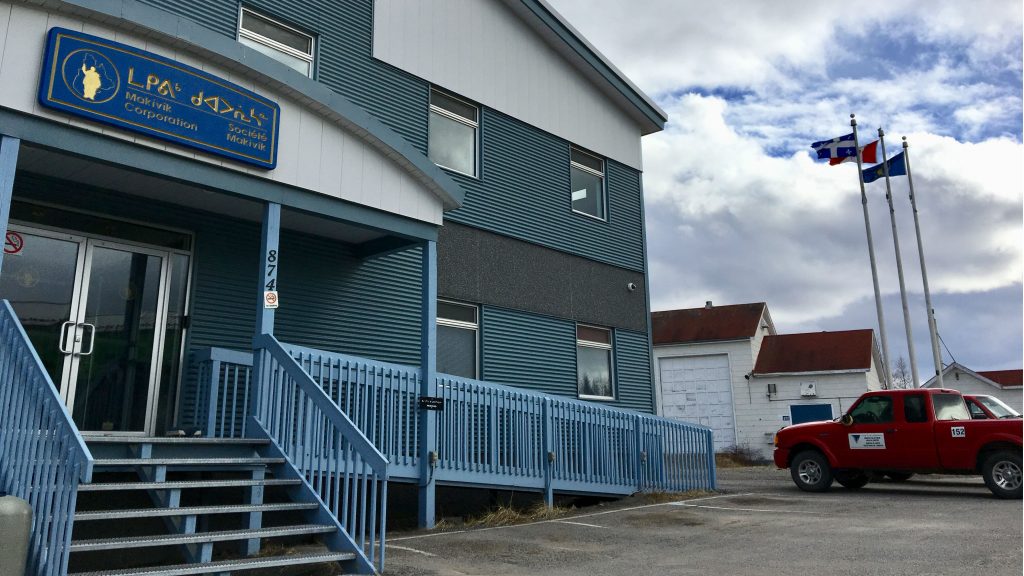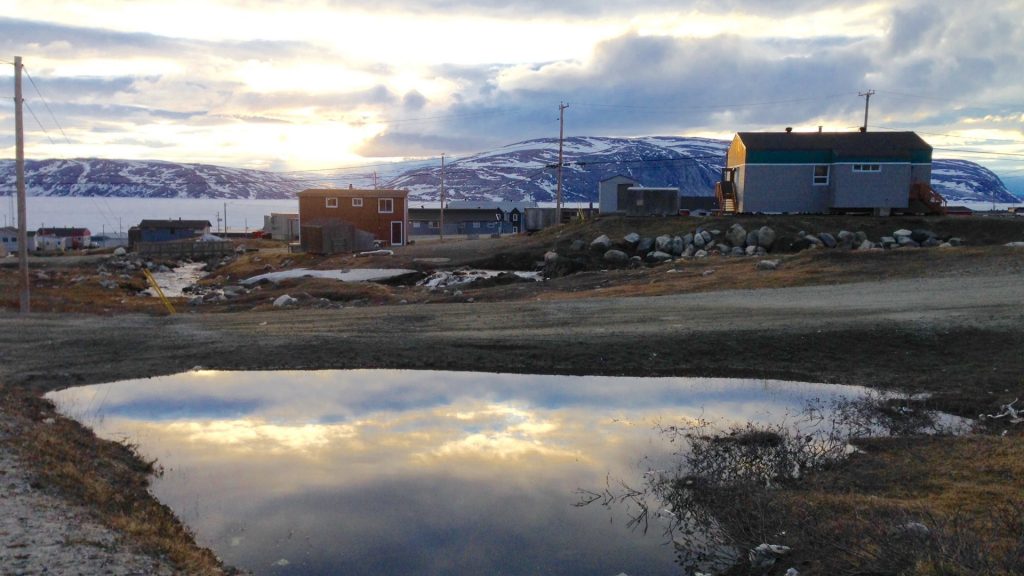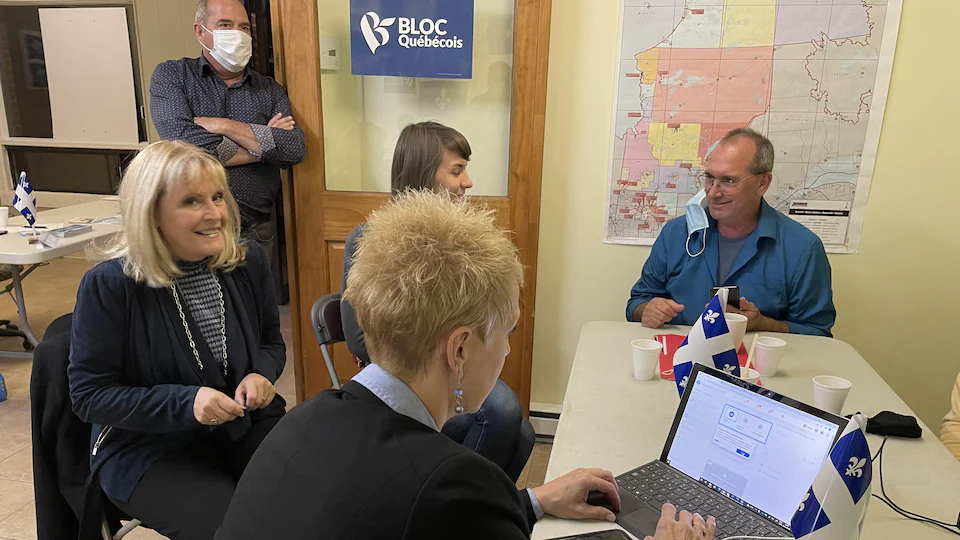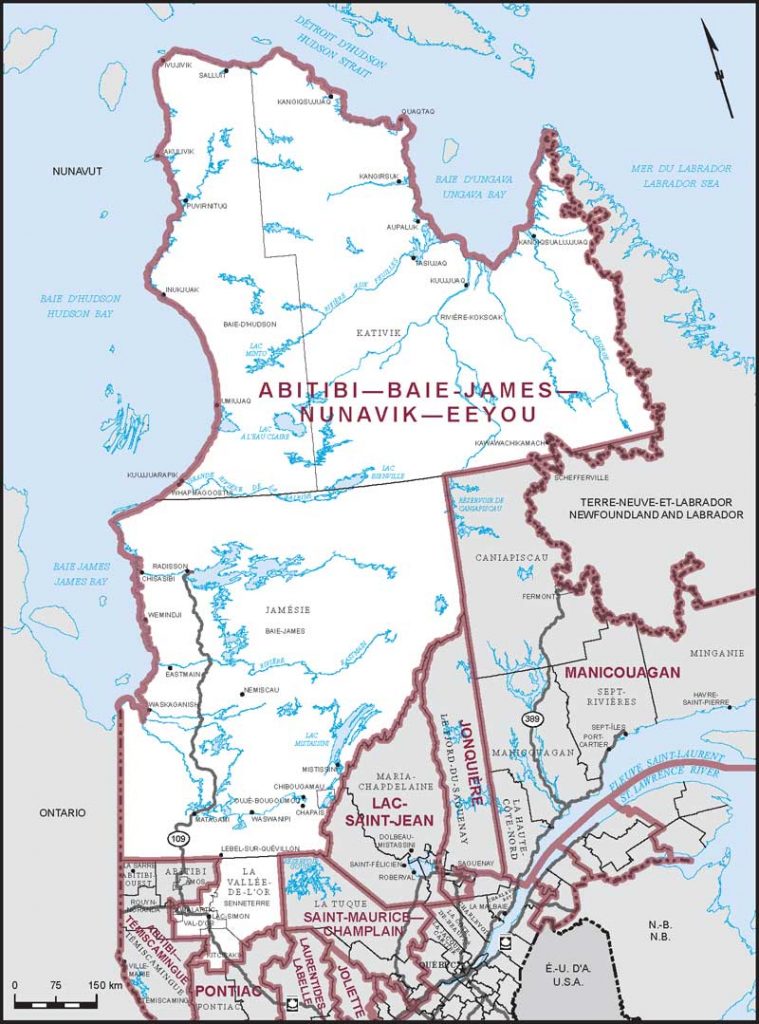Liberal minority gov ensures continuity, says Quebec Inuit org, but federal riding boundary ongoing concern

The return of a Liberal minority government in Canada’s elections on Monday will help ensure continuity on Indigenous files, says the land claims organization in Nunavik, the Inuit region of Arctic Quebec. But the riding boundary remains an obstacle to full federal representation for the region’s population, it says.
Canadian Prime Minister Justin Trudeau called a snap election in August in an effort to turn his minority government into a majority. After the elections September 21, Canadians returned a Liberal minority government more or less mirroring the previous Parliament. (Several ridings were still too close to call and undergoing recounts at the time of publication so the final seat count is still to be determined.)
Pita Aatami, the president of Makivik Corporation, says changes in government inevitably leads to delays on complex Indigenous files, and said he was relieved Makvik could continue its work more or less uninterrupted.
“This government first took office in November of 2015, and from that day forward we started the long process of educating the government and their officials on the issues that Inuit across the Arctic face every day,” Aatami said in a news release on Thursday.
“With the Liberals re-elected, it means that we can pick our files back up from where they were left when the writ was dropped and get right back to work. The working relationship between the Government of Canada and Inuit Nunangat has come a long way in the past six years, but there is still a lot of work that needs to be done.”
(Inuit Nunangat is the term used to refer to Canada’s four Inuit regions: the Inuvialuit Settlement Region in Canada’s Northwest Territories; Canada’s eastern Arctic territory of Nunavut; Nunavik in northern Quebec; and Nunatsiavut, in the Atlantic Canadian province of Newfoundland and Labrador.)
Housing & infrastructure deficit among priorities

Makivik says key issues that need to be urgently addressed in the Liberal’s upcoming mandate includes the lack of housing, the infrastructure deficit in Nunavik compared to southern Canada, and re-negotiating the 1990 Croll Agreement on the implementation of the James Bay and Northern Quebec Agreement (JBNQA).
“Forty-six years have passed since the signing of the JBNQA and implementation of the agreement continues to be in dispute,” Makivik said in the news release.
“There are several federal obligations that remain unaddressed or outstanding, and Makivik would like the federal government to come up with commitments that provide real solutions to these issues over the next three years.”
Bloc MP invited to region
Bloc Québécois MP Sylvie Bérubé was reelected on Monday with 38 per cent of the vote in the Abitibi-Baie-James-Nunavik-Eeyou riding where Nunavik is located.

Aatami said he invites her to Nunavik to see the region’s needs firsthand.
“It’s very important to us that you visit the region that you represent and that we discuss how you can help us in our priorities,” he said addressing her personally in his comments.
“The reality of the communities across Nunavik is drastically different when compared to a city like Val d’Or [in southern Quebec], and the only way to truly understand the constituents that you serve in Nunavik is to come to the region and meet us in person. We look forward to your visit to Nunavik and the talks that follow.”
Federal riding boundary ongoing concern
The Abitibi—Baie-James—Nunavik—Eeyou riding is Canada’s third largest riding geographically (854,754 square kilometres) after Canada’s eastern Arctic riding of Nunavut (2.093 million square kilometres)and the riding of the Northwest Territories (1.346 million square kilometres) in the western Arctic.

The riding has a population of approximately 88,000 people and is one of the most diverse ridings in the French-speaking province of the Quebec. Besides the Nunavik region in Arctic Quebec, further south it includes Cree communities and francophone towns and villages.
Nunavik has approximately 13,000 people and includes 14, fly-in only Arctic communities making its urgent needs unique from the rest of the riding, says Makvik. The organization says the riding boundary needs to be redrawn so Quebec Inuit voices are not lost in Parliament.
“Nunavik accounts for more than half the landmass found within the riding, but only accounts for approximately 15 per cent of the population,” the organization said.
“We ask: How can Inuit of Nunavik elect a representative that they feel will lobby for them at the federal level as their MP, when they are only a small percentage of the population represented?”
Write to Eilís Quinn at eilis.quinn(at)cbc.ca
Related stories from around the North:
Canada: With election over, Ontario Inuit org calls on federal government to increase support for urban population, Eye on the Arctic
Greenland: Greenland’s more prominent role on Arctic Council important signal to int’l community says foreign minister, Eye on the Arctic
Norway: Silje Karine Muotka is new President of the Sámi Parliament in Norway, The Independent Barents Observer
United States: Itn’l Inuit org approves report on ethical engagement with Indigenous knowledge, Eye on the Arctic



